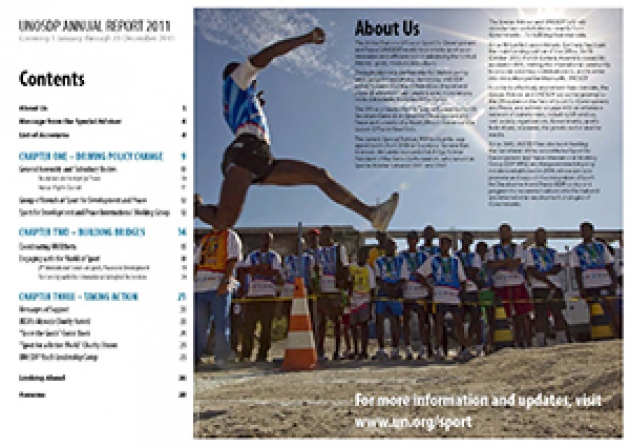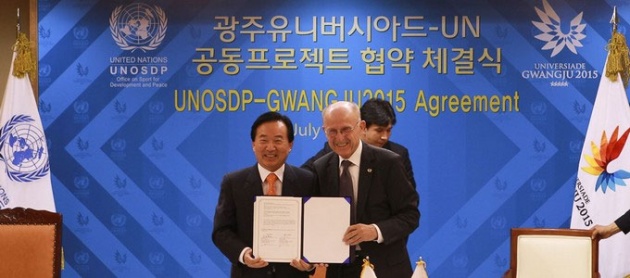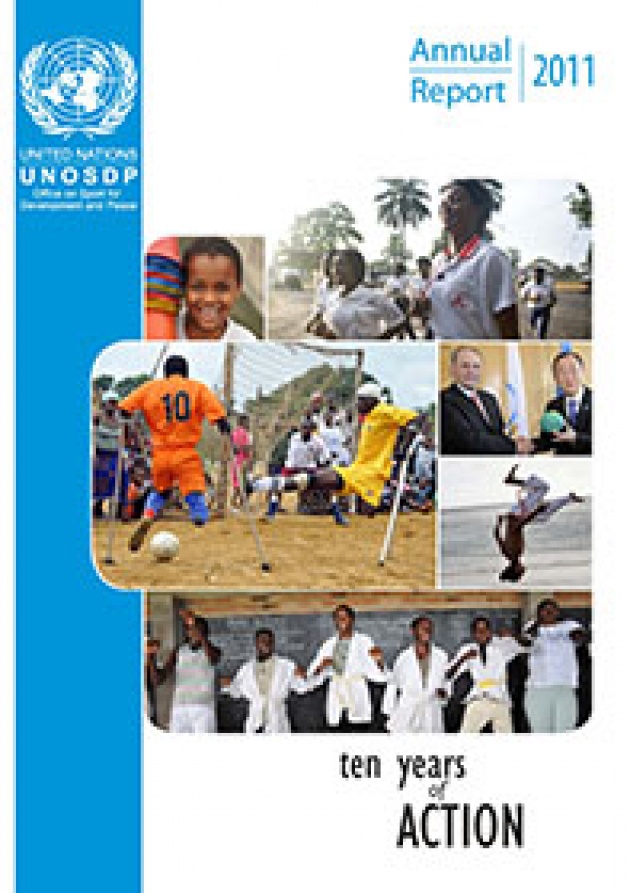
“Large sporting events have a great potential when it comes to fostering positive social change and leaving a lasting legacy benefiting the local communities, the host nations and communities abroad,” according to the UN Secretary-General’s Special Adviser on Sport for Development and Peace, Wilfried Lemke. This was ahead of the 2015 Universiade, an international and cultural sporting event bringing together university students this year in South Korea. Universiade has partnered to promote the UN Millennium Development Goals.
“It is very positive that the Gwangju Universiade 2015 Organizing Committee (GUOC) has taken such a clear and strong stand in that respect, and I look forward to working with them in order to realize the joint vision that we have developed, for the benefit of the youth in particular.” Universiade will be the 28th such event staged since 1959. The event originated from the World Student Games held in France in 1923. Held every two years in a different city in summer and winter and often just prior to the Olympic Games, the Universiade – which combines the words ‘university’ and ‘Olympiad’ – is an multi-sports event organized for worldwide university athletes by the International University Sports Federation, with the aim of promoting sporting values, such as fraternity and fair-play, and encourage sporting practice in harmony with, and complementary to, the university spirit.

Promoting a Unified Korean Team?
According to Mr. Lemke’s office, the partnership presents two main objectives: to foster inter-Korean exchanges through sport and to promote the eight MDGs through the Games’ legacy and outreach programme. One key component of the partnership will be to explore the possibilities of a first-ever United Korean Team to compete jointly in more than two sports disciplines at the 2015 event.
The eight MDGs, agreed on by world leaders at a UN summit in 2000, set specific targets on poverty alleviation, education, gender equality, child and maternal health, environmental stability, HIV/AIDS reduction, and a “Global Partnership for Development.”
Ambassador Muhamed Sacirbey - FOLLOW mo @MuhamedSacirbey
Facebook-Become a Fan at “Diplomatically Incorrect”
Twitter – Follow us @DiplomaticallyX
For many further current news event articles, see our popular video blogs at Diplomat Artist Channels

Press Statement:
Geneva/Seoul (UNOSDP) – The United Nations (UN) and the Gwangju Universiade 2015 Organizing Committee (GUOC) yesterday signed a partnership agreement seeking to support the attainment and awareness of the UN Millennium Development Goals (MDGs), as well as to promote dialogue and mutual understanding through sport. One key component is to explore the possibilities of a first-ever United Korean Team to compete jointly in more than two sports disciplines at the event in 2015.
The partnership was signed in the Southern city of Gwangju, Republic of Korea, by the UN Secretary-General’s Special Adviser on Sport for Development and Peace, Wilfried Lemke, and Gwangju Mayor and GUOC Co-Chairman, Kang Un-Tae.
“Large sporting events have a great potential when it comes to fostering positive social change and leaving a lasting legacy benefiting the local communities, the host nations and communities abroad,” said Wilfried Lemke. He continued: “It is very positive that the Gwangju Universiade 2015 Organizing Committee has taken such a clear and strong stand in that respect, and I look forward to working with them in order to realize the joint vision that we have developed, for the benefit of the youth in particular.”
The partnership presents two main objectives: to foster inter-Korean exchanges through sport and to promote the eight MDGs – which include eradicating poverty and hunger, achieving universal primary education and promoting gender equality – through the Games’ legacy and outreach programme ‘EPIC’ (standing for Eco-friendliness, Peace, IT and Culture).
The first objective will be pursued through the organization of sports youth camps, friendly competitions as well as through the expected formation of a unified athlete delegation between the two Koreas at the Gwangju Summer Universiade 2015. It is the intention that a ‘UNOSDP Youth Leadership Camp’ (YLC) be held annually in Gwangju, with participants from the two Koreas and other Asian countries.
“Last November in Doha, the organization Peace and Sport and the International Table Tennis Federation, two of our close partners, succeeded in forming two united teams, one men and one women, composed of a player from the Republic of Korea and one from the Democratic People’s Republic of Korea,” explained Wilfried Lemke. He continued: “I was fortunate to attend this historic event and sincerely hope that together with GUOC, we can replicate a similar initiative at the Universiade in Gwangju in 2015 in order to continue to show the potential of sport as a vehicle for reconciliation and peace promotion.”
Mr. Lemke is now in Seoul, where he met earlier today with Mr. Kwang-Shik Choe, Minister for Culture, Sport and Tourism of the Republic of Korea. There, he is also conducting meetings with a number of high-level representatives, including President of the National Olympic Committee, Mr. Yong-Sung Park; CEO of Korean Air and Chair of the PyeongChang bid committee for the 2018 Winter Olympics, Mr. Yang-Ho Cho; and Chair of the Special Olympics World Winter Games PyeongChang 2013 Organizing Committee, Ms. Kyung-Won Na. While in Seoul, Mr. Lemke also gave a guest lecture at the Hanyang University.
Yesterday in Gwangju, the Special Adviser also took part in a futsal game, together with children with a visual impairment, at one of the ‘Hiddink Dream Fields’, constructed by the Hiddink Foundation, established by former South Korean national football coach Guus Hiddink.



